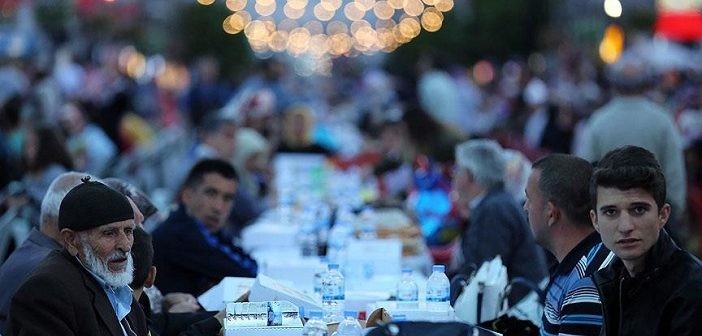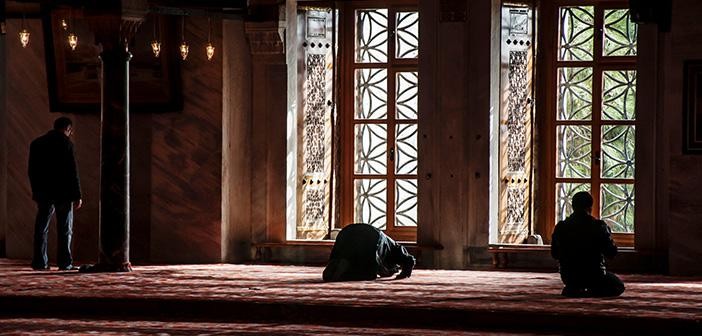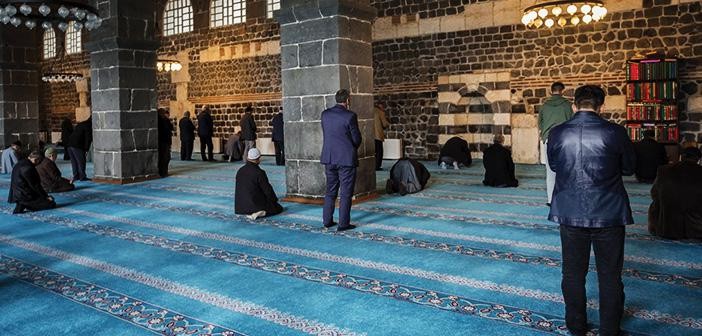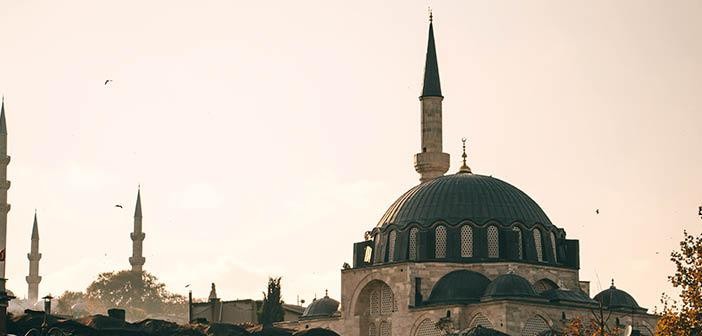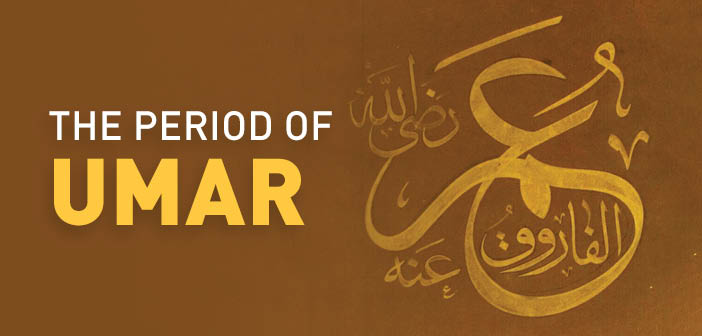
The Period of Umar
Who is the second caliph? Who is the umar in islam? What is the short life of caliph umar? Who is the second muslim caliph?
The Period of Umar (634–644)
Umar who had an important role in the election of Abu Bakr as the caliph helped him in the state affairs and also served as a judge (qadi) in Medina. When Abu Bakr’s disease got worse and he was not able to lead prayers any more, he appointed Umar as imam in his place and made a testament about his appointment as the caliph after him. Umar (634-644) too was a perfect man. He gained fame with his willpower and justice. The most distinctive feature of his time was “the movements of conquest” and “the organization of the Islamic country.” Muslims were able to conquest Syria, Iraq, Iran, Palestine and Egypt in this time, so the boundaries of the Islamic state notably extended.
The Conquests
A) Iraq, Iran and Khurasan
When Umar became the caliph, he appointed Abu Ubayda as the chief commander and accelerated the movements of conquests of the lands of Iraq and Iran which had started in the time of Abu Bakr.
B) Qadisiyya War (15/636)
Umar appointed Sad bin Abi Waqqas as the commander of the army which was sent over the Persia. Learning that Muslim army was moving towards Iran, Kisra Yazdagard immediately began preparations. Yazdigard sent Jalinusu with a vanguard unit constituted from 40,000 men. And then he sent his commander in chief Rustam with the main force constituted from 60,000 men and finally sent a rearguard unit consisting of 20,000 men. So 120,000-man Sassanid army gathered in Qadissiyya. 30,000 of the Persian army were armored and they were chained to each other in order to increase their strength. And there were also elephants placed in the front rows of the Persian army. On the other hand, Muslim army was composed of 34,000 people. Sa’d (r.a.) wanted to take care of the problem with an agreement so he sent the following message to the Persian army by his messengers: “We give you a 3-day period. During these 3 days, you should either convert to Islam, or accept to pay jizya (poll tax) or get ready for the battle. They didn’t accept these conditions in the three-day period. On the 4th day Muslim soldiers attacked the enemy upon the orders given to them. Persian army responded with the elephants they had in their army. Violent collisions were witnessed on the first day. In the following days, Muslims defeated the Iranian army with ingenious military strategies they applied. When the Persian army’s commander in chief Rustam was killed, the army was disintegrated. Muslims had 8500 martyrs in this war. Almost all Persian soldiers were killed. Muslims won a great victory. Later, with the orders of Umar, Muslims moved to the capital city of Sassanid State, Madayin where the ruler of Persian Kisra lived. Receiving the news that Muslim army was moving to Madayin, the Iranian Kesra Yazdegard left the city with fear. Muslim army easily entered the city and conquered Madayin. A huge booty was obtained in Qadisaya war and the conquest of Madayin. Muslims captured the palaces and treasures of Kisra. With this victory, the gates of Iran were opened to Muslims and also it paved the way for the victory in the following battles.
C) The Battle of Nihawand (21/642)
After being defeated in Qadisiyya and Jalula battles, the Persian Kisra Yazdegard the 3rd began to gather an army again. He prepared a big army and appointed Firuzan as its commander in chief. Learning this, Umar ordered the people of Basra and Kufa to go to war and appointed Numan as the commander of the army. Then he advised Numan that if he gets martyred in the battle, Hudhaifa should take his place. Two sides met at Nihawand. When Numan was killed, Hudhaifa b. Yaman took the command of the army. And then Muslims became victorious. This battle was called “Conquest of the Conquests,” because after this victory the conquest of Iran became easier and Muslims gained many spoils of war.
D) The Conquest of Khorasan
After the success attained at Nihawand, Umar gave the order for the conquest of Iran. He personally appointed the commanders to carry out the conquest. Ahnaf b. Qays was the commander who was appointed for the conquest of Khorasan and the surroundings, one of the areas to be conquered.
Losing his crown and throne, Yazdegard the 3rd asked help from Turkish and Chinese rulers as a last hope. However, he was unable to find what he had hoped. What is more, he was killed in that chaotic atmosphere by his close men who desired to take his wealth and treasure.
The commanders and soldiers charged with the conquest of Iran became successful. And thus Iran was completely conquered in a very short time.
The Muslim armies advancing under the command of Ahnaf b. Qays conquered Khorasan and the northern parts of Iran. Thus, the borders of the Muslim State in the east extended up to Oxus River, which was traditionally considered as the boundary between Iran and Turan
E) The Conquests in the Lands of Byzantine
Most of the conquests in the time of Umar were done in the lands of the Byzantine Empire.
F) Conquests in Syria
As we have mentioned before, the activities of conquest in Syria during the time of Abu Bakr also continued without interruption during the period of Umar. Byzantine army was heavily defeated in the Battle of Yarmok. And then Muslims captured Akka, Humus, Kinnesrin, Aleppo, Antioch and Varosha without encountering strong resistance. The fall of Syria and Damascus would mean the Byzantine’s loss of the Eastern Mediterranean. It is narrated that when the news reached to the Byzantine Emperor Heraclius, he looked at the land of Syria for the last time and said: “O Syria! I greeted you as a guest bestowed upon to me! But today, I say farewell for the last time. From now on, there is no way for the Romans can come back to you; those who can will do it in fear. What a sad fate this is!”
G) The Conquest of Jerusalem
Muslim armies advancing towards Palestine under the command of Amr b. As captured the lands of Jordan. They conquered the important parts of Palestine and advanced up to Jerusalem. This city which was the religious center of the Christian World during the Middle Ages, was kept under siege for four months.
Christians realized that they could no longer resist the Muslims and told that they would surrender the city provided that the Caliph personally to come and take over the city. Muslims did not want bloodshed, either. Finally, Umar came and took the keys of the city (17/638). With the conquest of Jerusalem, no serious obstacle left before the conquest of Egypt.
H) The Conquest of Egypt
Umar gave the task to conquer Egypt to Amr b. As. While going to Egypt along with about 4000 soldiers, Amr encountered with Egypt-Roman and Coptic forces at a place called Ferma. There was a conflict between the Romans and the Copts in those days. Amr put this conflict in good use and conquered Ferma. Later, many other cities and castles were captured. Umar also sent a 12 thousand men subsidiary force under the command of Miqdat b. Aswad and Ubada b. Samit, who made the conquest of Egypt (19/640) easier.
As a result of some negotiations between Amr b. As and natives of Egypt, an agreement was reached. The Roman Emperor Heraclius however, didn’t accept the people’s approval. Amr b. As prepared a huge army to go to Alexandria.
Upon this, the Muslim army marched on Alexandria and at the end of a three-month-long siege the city was conquered and many spoils were obtained (642). Thus, Egypt got completely out of the control of the Byzantine Empire.
Organization of the Muslim State during the Period of Umar
With the conquests of the places mentioned above, the Muslim State acquired an extensive land. And while the Muslim state was expanding, many administrative, political, legal and economic questions emerged to be solved in accordance with the Islamic principles.
Umar was an intelligent and sagacious person. He ensured the validity of the same Islamic rules, the usage of the same political division, and the same monetary system in every country conquered by the Muslim forces.
People believing in religions and creeds who lived under the rule of Muslims were protected within the principles of their own religion, their laws and customs. Their lands were not taken from them and their earnings were not confiscated. During the period of Umar:
- In addition to “the General Assembly” meetings in which everybody could easily tell their views were formed to discuss the important affairs of the state, another “Assembly” was established to discuss the daily matters.
- Regional managers and governors were replaced when people in the region didn’t want them. In addition, administrative regions were divided into various parts within themselves.
- Commercial, economic relations and taxation were practiced according to certain rules. “Kharaj (land tax)” was recognized as one of the state taxation for the first time during this period.
- Army was based on the specific disciplinary principles; permanent barracks and army headquarters were established.
- The state treasury was organized based on a certain order; necessary measures were taken to be fair in the state expenses.
- Judiciary power was separated from executive power in Umar's administrative organization. Judges were appointed. Edicts were enacted in order to establish a legal procedure.
- The institute of ifta (issuing legal opinions) was established. This institute which was established in the early stages of Islam was not seen in any other culture. Those who want to get information about a legal matter would go to those legal consultants and get informed.
- City Police Organization was established; and market places, overloading the animals, selling alcohol, and inaccurate and incomplete weighing were started to be inspected.
- Prisons were also established in this period.
- Institutions needed for Islamic scholarship and moral education were established; scholars whose salaries were paid from the state treasury were employed in those institutions.
In short: a regular army was established for the first time. Salaries were started to be paid to the soldiers. Headquarters were established in Syria and Palestine. In order to keep the records of the military, the military council was formed for the first time. An assembly was founded to discuss the important issues of the state. “Kharaj” (field and land tax) was started to be collected from non-Muslims. “Bayt al-Mal (state treasury)” was founded for the first time. Country was divided into administrative units. Judges were appointed by the governors and the caliph. Judges were charged with the works of justice for the first time, so the affairs of administration and justice were separated. Hijri calendar was put into practice by taking date of Hijrah as its beginning.
Umar was remembered with great love not only among Muslims but also non-Muslims. Umar who accomplished all those great achievements by properly doing his leadership duties lived a simple life.
The Martyrdom of Umar
A slaved named Abu Lu'lu (Firuz) who had been captured during the Nihawand War (642) told Umar his complaints about his master. Evaluating the complaint, Umar stated that he found the amount of fees that he paid to his master normal considering the work he did. However, this decision made slave Firuz angry and he martyred Umar by stabbing him in six places the next day during the morning prayer.
When Umar was wounded, he was asked about who should be the head of state after him. And he transferred the issue to the council (shura).
On the third day (November 3, 644) following the day he got wounded, Umar passed away. He was one of the great Muslim leaders who managed the Muslim State develop and expand during his decade-long administration.
The Personality of Umar (May Allah be pleased with him)
Umar (May Allah be pleased with him) was the first caliph who was known by the title “Amir al-Mu’minin (the leader of the believers)” which was a title given to the caliphs after the era of four caliphs. Companions called Abu Bakr as “Khalifat Rasulillah (Caliph of the Messenger of Allah).”
When one thinks about Umar, the first thing comes to mind is his justice. Status and the reputation of people would not mean anything in his application of justice. If interrogating and punishing criminals were necessary, friendship and kinship wouldn’t stop him. He listened to everybody’s complaints and told Muslims that they could come and tell him any problems without hesitating. He sat in the courtyard of a mosque after prayers, listened to the complaints and requests of the public. At night he wandered around and tried to meet the needs of the needy. He would ask the people who met about the situation of the state and the public.
A famine broke out in his time. He ordered a camel to be slaughtered and distribute it to the needy people of Medina. The next day one of the staff to do the distribution prepared a nice meal with some piece of that camel and brought it to the caliph. Learning that the meal was prepared with the meat of the camel slaughtered the day before, Umar said: “Oh, what a pity for a ruler like me! He eats the best part of the meat and gives the bones to the poor. Take these and give them to those who are in need and never ever do such a thing again. The caliph eats meat only once a month.”
He was extremely careful about the properties of the state. He paid attention not to waste them, but use them completely for the benefit of the public. He got his salary from “Bayt al-Mal,” but he was the one taking a payment among the Muslims. Most of the time he couldn’t even meet his needs and thus he would borrow money.
Umar was a contended, patient and humble person, who devoted himself to worship and living a simple life style. He didn’t mind wearing patched clothes, lying on a hard bed, grazing the camels of treasury and caring them. One day, one of the camels he looked after ran away. While he was trying to catch this camel Ahnaf b. Qays saw him and told that he should have a slave catch camel. Upon this Umar responded him: “Is there any better slave than me?”
Umar was a good orator. He developed this skill in the poetry contests in Ukaz fair. He had strong and effective voice. He loved the poems in which ethics, honor, justice, and freedom are told, memorized them and recommended them to the public. Many of his words were recorded in the sources. He was good at rhetoric as well as writing. His letters and instructions were rich in literacy and reflected his scholarly identity.
Umar had a strong power of reasoning. During the time of the Prophet and Abu Bakr and his own caliphate the opinions he issued in many aspects of life are the best evidences for this.
Umar didn’t like the innovations in religious matters (bid’ah) and superstitions so he took the necessary precautions to prevent them. During the time of the Prophet, people started to show favor to the tree under which the incident of Bay’at al-Ridwan (the Pledge of Ridwan) took place in Hudaybiya. Concerned that might eventually harm the belief of tawhid (monotheism), the caliph immediately had that tree cut. One day, he stood in front of Hajar al-Aswad (the Black Stone) and said loudly: “I know that you’re nothing but a stone and you can do no harm and good. But since I saw the Messenger of God touching you, I’m doing the same and it is sufficient for me”.
Source: Islamic History Book, Erkam Publishing.
https://www.islamandihsan.com/abu-bakr-as-siddiq.html


